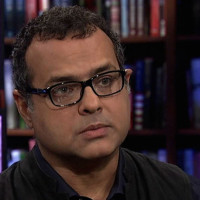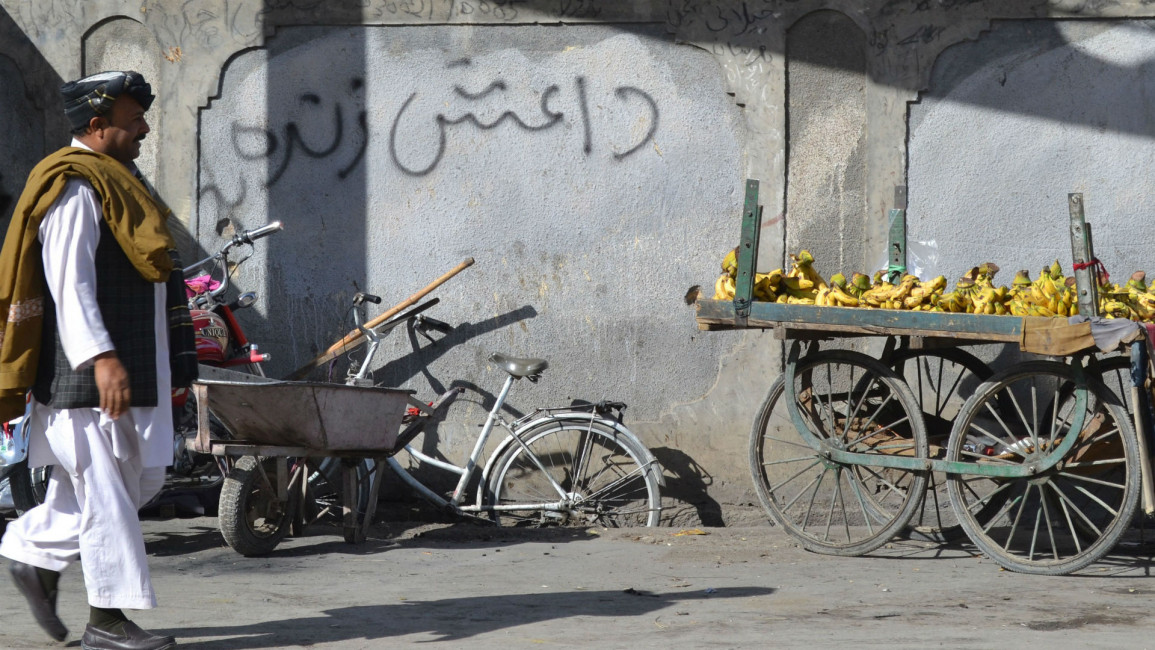
Good Islamists, bad Islamists and the playthings of power
Mohamedou Ould Slahi, detainee no. 760 at the US military prison at Guantánamo Bay, has published his diary.
Descriptions of torture are legion, but one would expect that. What else is life like in such a prison, built for regular, cruel humiliation? The US government redacted Slahi’s text – large patches of black obscure his words. What is not redacted is the most obvious problem with the story – why was Slahi in Guantánamo in the first place?
| Slahi was a ‘Good Islamist’ in the war against the Communists. When he was picked up in 2002, it was as a ‘Bad Islamist’ |
Despite clear statements from Canadian and German intelligence that Slahi had no operational or even ideological role in terror networks, the US intelligence agencies asked for his arrest in 2002. Picked up in Senegal while Slahi was on a routine trip from Canada, he was rushed to Guantánamo. He has been there since. Why was the US interested in Slahi?
In 1990, Slahi joined al-Qaeda to fight in Afghanistan against the Communist government of Mohammed Najibullah. He would last in the group until 1992. During Slahi’s tenure in al-Qaeda, the US Congress held a hearing. Representative Lee Hamilton (who would later chair the 9/11 Commission) questioned the State Department’s John Kelly (who had been US Ambassador to Lebanon, 1986-88) about the US-funded war in Afghanistan. Hamilton asked about the “fundamentalist Muslim leaders” who had been financed by the United States. Kelly responded, that most of “the Mujahideen are what might be termed fundamentalist Islamic believers”.
Both the militias of Gulbuddin Hekmatyar and Abdul Rasul Sayyaf received US funds. Sayyaf was a close friend of Osama Bin Laden and a mentor of Khalid Sheikh Mohammed (the architect of the 9/11 attack). He ran a well-known terrorism school in Peshawar called Dawa’a al-Jihad (Call of Jihad). Slahi, a foot soldier, had joined groups funded by the US and acknowledged by them as being on the ‘right side’ of history.
Between 1990 and 1992, in other words, Slahi was a ‘Good Islamist’ in the war against the Communists. He left al-Qaeda and tried to build his own life. When he was picked up in 2002, it was as a ‘Bad Islamist’ – although he had not been part of any terrorist network.
Brigadiers of Jihad
The Taliban attack on the Army Public School in Peshawar rattled Pakistan’s army leaders. Brigade commanders recently recounted their dismay at the attacks. Many of them have served in Waziristan, from where the Taliban attackers hail. In their long-standing battle in Waziristan, these brigadiers have seen their “boys” die in the line of duty. The war between the Pakistani army and the Taliban has been very bloody. A media blackout of the region has meant little understanding of what is happening in the high mountains. The Pakistani regime’s Interservices Public Relations and Military Intelligence control the storyline that emerges from its battle with the Taliban. But that narrative is changing. One brigadier says that the attack in Peshawar and his own experiences in Waziristan clarify matters – no longer should the Pakistani regime cooperate with the ‘Bad Islamists’.
The key words here are “no longer”. It is public knowledge that General Hamid Gul, Major General Zaheer ul-Islam Abbasi and Brigadier Sultan Amir (Colonel Imam) had helped the Taliban from the early 1990s. In late 2001, it was these Pakistani military officers who helped the Taliban, routed by US airpower, reshape their forces into a guerrilla movement (Colonel Imam told Carlotta Gall this in 2009, which forms the most incendiary part of her The Wrong Enemy. America in Afghanistan, 2001-2014).
It was the Pakistani regime of General Zia-ul-Haq who drove a strongly Islamist agenda into the Pakistani state and society. General Zia introduced Pakistan to a virulent anti-Shia-ism, the ideological plank of the “Islamic State”. The very same people that the Pakistani brigadiers now see as their enemy (‘Bad Islamists’) were once their close friends (‘Good Islamists’). The cost this has claimed from ordinary Pakistani people is unaccountable.
| Journey from one end of the 'caliphate' to the other. Read here |
A week ago, the Islamic State group (IS, formerly ISIS) released an incendiary video to announce the "caliphate's" province of Khorasan – a region that includes Afghanistan, Pakistan and India. The emir of Khorasan is to be Hafiz Saeed Khan Orakzai, a 42-year-old former Tehrik-i-Taliban Pakistan (TTP) leader from the borderland region of Orakzai. The "Islamic State's" new Khorasan wing is formed of former TTP fighters who had left the group after a series of drone strikes killed off their emirs – all from the Mehsud clan – and produced acrimony amongst the leadership. Among the new leadership are Shahidullah Shahid, Gul Zaman, Mufti Hassan, Hafeez Quran Daulat and Khalid Mansoor – all names familiar to Pakistani intelligence.
One of the brigadiers said that the Pakistani military knew of the movement of jihadis from the region to Syria-Iraq. It was considered a “safety valve”. Such is the logic of Saudi Arabia, which also sent off its ‘Bad Islamists’ to create chaos elsewhere (Afghanistan, Chechnya, Iraq, Syria). The Peshawar school attack seems to have strengthened the backbone of some among the Pakistani army – but what will they do with that newfound confidence? Not much. The Pakistani regime’s strategic use of jihadis is central to its geo-political ambitions. It will consistently build up the ‘Good Islamists’, and then consider them bad when they act without orders.
Mohamedou Ould Slahi pays the price of thinking he was a ‘Good Islamist’. When the geopolitical tide turned, he had to be thrown to the wolves. So many Pakistanis from the border region are toyed with in the same way, and then they become far more dangerous than even their Frankensteins could have anticipated. People in power are playing very treacherous games. Consideration of the chaos that they spin does not bother them. The cost is borne elsewhere than in the halls of power.
Mian Iftikhar Hussain, who heads the left-of-center Awami National Party, warns against being cavalier about the arrival of IS. “We ignored al-Qaeda,” he says, “and it became powerful here, at our expense. If we’re incompetent again, Daesh [IS] will divide Pakistan, just as it did Syria and Iraq.”




